2)John Cale
"Get Out of Bed" leads off Liv, the 1971 album from Livingston Taylor, and it is a brilliant and exciting slice of pop music which should have been a huge international smash. It is one of those songs that you want to play 50 or 60 times in a row, perfectly written and recorded. Produced by Bruce Springsteen mentor Jon Landau and managed by Don Law, the son of the legendary country record producer Don Law, Sr., this Warner Bros. album had all the elements, and is more endearing than the two Top 40 hits this member of the famous Taylor family eventually garnered in 1978 and 1980. Liv's original songs are uplifting and give brother James Taylor a good run for his money. "May I Stay Around" has a vibrant vocal working itself over the elegant acoustic guitar, the bright green colors of the album cover and the laid-back young Livingston sitting in a chair looking aloof just calls back to a time when this sort of music was exploding -- Jim Croce, brother James, Harry Chapin, and Carole King, who he is closest to both vocally and sentimentally. The singer picks up the piano on "Open Up Your Eyes," "Get Out of Bed," "Be That Way," and "Gentleman," as well as the cover of "On Broadway," and with the understated production of Jon Landau, Livingston's beautiful heartfelt vocals make this an extraordinary work of art. Most of the tunes are around the three-minute mark, except for "Easy Prey," which gets over four-and-a-half; "Gentleman shows where the artist's contemporary (one year younger than this Taylor) Dan Fogelberg found part of his sound, though the performance is not as pronounced as "Easy Prey," the band kicking in early on that tune, Bill Stewart on drums, Paul Hornsby on electric piano, Tommy Talton on lead guitar, performing breathy, moving stuff. A low-key Quicksilver Messenger Service from the East Coast is what this album is, a musical journey full of delight and surprise. Dave Woodford's flute on "Open Up Your Eyes" is perfect and essential, and this serious music is the antithesis of Hugo Montenegro's Dawn of Dylan tribute album. Liv is the real thing by a troubadour who never really got the acclaim he deserved. Perhaps he was overshadowed by older brother James Taylor, or maybe Jonathan Edwards' "Sunshine" going Top Five nationally the year this album was released edged out other music from Boston instead of putting a focus on the region. Politcal reasons for this not making him a huge star aside, what remains is a very strong album which cries out to get played again and again. Exquisite.
Q:The obvious question, is the new albuma concept album like Rosebud?A No, it is a hand-picked collection of 15 songs I have written since my "Breakdown on Memory Lane" CD.Q: Painting is such a metaphor for songwriting,and I get the sense this is a bit of biography forpeople you have knownA I saw the film "At Eternity's Gate" and was moved by the story of Vincent Van Gogh, how his paintings didn't sell while he was alive. The metaphor grew out of the writing of this song.Q 15 songs today is almost a doublealbum in the 1970s, and I'm currently readinga book on how Beach Boy Brian Wilson pushedthe envelope with his song, expanding the lengthfor radio and such. Why did you choose thenumber 15 to tell this particular story?A I'm telling quite a few stories and it took the number of 15 to tell them all.Q:Bob Dylan\s "Like a Rolling Stone" is said tobe a tapestry with different personalities gettinglectured by the composer/singer. Is it fair to askif this is a combination of people, or are youwriting about specific individuals?A When it says in the lyric booklet "For Harvey Brownstone" or "For Jim Keaton," the song is about or from the viewpoint of that person. "Samantha Lynn" was inspired by the first season of "The Handmaid's Tale." I'm definitely not lecturing. Bob Dylan is good at that. But as my screenwriting professor said, "If you want to philosophize in a script, put it in the mouth of the cab driver.' These songs are my and other people's stories. No lecturing going on.Q: Is each song a separate painting?A Is "At the Bridge" fiction or is there aprotagonist....are you the protagonist?
Q:You are using a new platform to get the albumto the listeners. Does this allow for more expression?A I'm trying to use "Oohyeah.app" created by Travis Allen. That way, people can hear it for free, but if they want to download, the fee goes directly to the artist. My other five recent (since 20th albums) CDs are all available for free on Spotify, Rhapsody and all the other streaming platforms. As you must know, that is very hard on the creators.Q: I was kind of taken aback with the booklet beingonly the lyrics, and no liner notes. Do you want thelistener to figure things out and not give any hintto the storyline in the 15 compositions?
CD: Tears from Stone
“I’ll Fly Away” on the Tears From Stone CD is carefully guided artistry from the hand of a master craftsman of the New England area music scene. The four minute and nine second song could be John Denver at his country best, but more than that, one can almost hear the Gospel voices that aren’t there, a pretty statement almost prayer-like in its sincerity. Steve Gilligan’s bass and backing vocals from Liz Buchanan work alongside multi-instrumentalist Kenny Selcer to bring this exquisite piece home.
“Like a Sun Shower” has a similar feel, though it is stylistically different in its folk/pop splendor with a strong vocal front and center. It’s simply beautiful.
The word eclectic is used to describe so many things, but the dictionary definition reviews Kenny Selcer’s music to the T: “deriving ideas, style, or taste from a broad and diverse range of sources.” Selcer offers vocals, acoustic, electric and slide guitars, backing vocals, keyboards, string arrangements, horn arrangement, percussion, mandolin, music and lyrics from his own musical experiences while John Loud, Bernie Geddry and Mike Migliozzi’s drums, Chris Billias on keyboards, and Joe Kessler’s violin all play their part as part of the tapestry, never stepping on the sounds as they combine to shape each of the sixteen tunes.
“Nothing Started Nothing Gained” actually starts the album off with West Coast folk rock that David Crosby could groove to. This writer puts the disc in a “shuffle” mode, so these thoughts on the material, some of which I’ve heard on radio over the past months, are in no particular order.
“I’m Leaving this Town” in its neo-reggae rocking structure is a popular theme with many musical people, like a residency at a club that turns into a merry-go-round. Sometimes the grass is always greener, and sometime a place just burns you out Is the singer/guitarist imagining, being wishful, or just considering the moment? “Please Disregard” seems like a fusion of rock, country and blues, drawing you in with the musicianship and chord structure, a very strong track. “Morning Light” one could hear from a Paul McCartney or Emitt Rhodes solo-disc where they played all their own instruments. Introspective with the instruments vying for center stage with the vocals. It’s a 180 from “In America” which reflects 60 pop producers like Jerry Ross and movie themes from that era.
Kenny’s musicianship flows from track to track, years
playing on the folk circuit and making recording give him a grasp that he and
his colleagues bring the listener on songs like “Up In Heaven” and “On a Ride.” “On a Ride” closes the journey out with an
uptempo burst of energy. Kind of like
the singer on horseback riding out to the sunset and gifting so many ideas and
melodies. This is a double-disc for sure
and a beautiful listening experience.
RIP Denny Laine https://www.allmusic.com/album/aah-laine-mw0000841714
Aah Laine Review by Joe Viglione
Denny Laine did not know this album was released on Warner Bros until 1989. He surmised that the late Tony Secunda, manager for the Moody Blues when Laine was in the band, sold the U.S. rights to Warner Bros. (The original pressing was released in 1973 on Wizard Records in Europe.) Laine is wearing a Wings T-shirt on the front cover and it is amazing that he didn't perform some of these songs with Paul & Linda McCartney when they were all together. "Find a Way Somehow" has that "Let Me Roll It to You" sound from Wings' Red Rose Speedway. But the best track here is "Baby Caroline," which rivals a song called "Blue Nights," not on this collection, and one of Laine's most perfect moments. His voice is in great shape -- bluesy, defined, and in sync with the tunes. "Havin' Heaven" bops and is a good departure from the mellow leanings Laine's music gravitates toward. As a founder of the Moody Blues and singer of their first hit, "Go Now," Laine, like Chad Allen of the Guess Who, found himself shifting gears after finding success. Allen's music is also substantial, and although Laine penned "Say You Don't Mind," a hit for Colin Blunstone, this album is very much like Allen's work on Brave Belt: underrated and underappreciated. "On That Early Morn" has tasty guitar and a '50s feel. It really is astounding that while his band was hitting number one with Band on the Run, Laine had no idea he had an album out in America (which was one of Warner Bros' biggest failures of that year). Laine performing "The Blues" and "Sons of Elton Haven Brown" on-stage, maybe as opening act for Wings that year, could have changed rock history. This is music straight from the heart.
Man's Best Friend Review by Joe Viglione
https://www.allmusic.com/album/mans-best-friend-mw0000565745
Man's Best Friend boasts superb musicianship, high production values, good song selection, beautiful vocal performances from Livingston Taylor, and an impressive cast of guest stars who do not get in the way of the singer/songwriter. Though "First Time Love" broke the Top 40 for a couple of weeks in September of 1980, this album, much like his work on Atco a decade earlier, is superlative and deserved more chart activity. Converging on "Sunshine Girl" are drummer Jeff Porcaro, Jeff Baxter from Steely Dan and the Doobie Brothers (it should be noted, a fellow Bostonian), and ex-Turtles Flo & Eddie, just the right touch to knock this one out of the park. "Sunshine Girl" is so sincere, such an uplifting composition and performance, that it makes it frustrating to hear these remarkable sounds and know that Epic Records or whoever couldn't deliver this to the wide audience it deserved. Covers of Randy Newman's "Marie" and the Stevenson/Gay/Hunter classic "Dancing in the Street" are fine, but the collaboration between Baxter and Taylor, "You Don't Have to Choose," like the aforementioned John Manchester/Livingston Taylor title, "Sunshine Girl," gives the listener insight to the artistry at play, insight you can't find on the fun romps "Ready Set Go" and "Dancing in the Street." It's a nice mix, though. Carla Thomas dueting with Taylor while backed up by Steve Cropper and the Memphis Horns is pretty phenomenal. Baxter takes to the keyboards on this cover of the Motown hit, giving Cropper space, but who wouldn't have loved to hear a guitar duel here? When the earthy dance stuff subsides, Taylor hits you with a co-write his wife, Maggie Taylor, helped him with, "Out of This World," and not to sound cliché, it is out of this world. Taylor has a sweet, down-home folksy voice perfect for pop radio, and his delivery is magical, from the calypso-style "Face Like a Dog" to the beautiful rendition of Jon Hall's 1975 hit, "Dance With Me." Don Henley is on harmony vocal for the Orleans tune and, as stated above, these big-name artists do a marvelous job of complementing the music, not impeding it with overplaying. From his 1971 Jon Landau-produced LP Liv to this John Boylan/Jeff Baxter co-production almost a decade later (the producers doing their tracks separately, not collaborating), Man's Best Friend continues the consistent musical saga of a musician who should be a huge star. Where brother James Taylor is the icon, deservedly so, it is too bad room wasn't made in the pantheon for this bright and talented artist. Livingston Taylor's albums are refreshingly strong, and enhance radio when they get their chance to entertain. This one's a contender for lost classic status.
https://www.allmusic.com/album/livingston-taylor-mw0000043888
Livingston Taylor Review by Joe Viglione
It would be difficult not to compare Livingston Taylor's self-titled 1970 debut to his brother's second solo release, Sweet Baby James, as the latter certainly brought attention to the former, but the Jon Landau-produced disc crafted in Macon, GA, is a world unto itself. Ten originals by Taylor along with one cover, the Earl Greene and Carl Montgomery country standard "Six Days on the Road," make for a pleasant listen. "Sit on Back" is a bright enough opening, with "Doctor Man" bringing in a bit of the darkness. "My time's at hand" is the same line James Taylor used in the hit "Fire and Rain" and both brothers spent their time in the psych ward: "People with smiles/They talk of a hand that they got from a man called the doctor man." You would love to hear Lou Reed take this on, and somehow the pretty guitar and arrangement are real paradoxes for what should be a dirge, the lyrics profoundly in need of a few spins to sink in. Because much of this album feels like the producer and the artists were getting their bearings, "Six Days on the Road" becomes one of the more accessible tracks. Versions by Hank Snow, Bloodwyn Pig, the Flying Burrito Brothers, Taj Mahal, and others proliferated, and this is not as ethereal as the artist's cover of "On Broadway" from the Liv album, but in its simplicity the point still gets across. The LP cover photo is pretty out there, with Taylor looking down from a metal structure of some sort, his hair all frazzled, while the back cover has a darkened room which looks like a recording studio. "Packet of Good Times" is very up-tempo, while "Hush a Bye" brings things right back down and, like most of the project, is understated. It's on Liv, the second album, that things really come together. Sure, these songs are well constructed, but they still seem somewhat raw and no doubt influenced the way things would be tackled the second time around. Sister Kate and James are referenced in "Carolina Day," a song with more parallels. "Can't Get Back Home" follows suit -- impressive ditties with "In My Reply" up and "Lost in the Love of You" down again. The obvious yin yang would change on the next album, which should have been a huge breakthrough for this sensitive and special artist. The seeds of future work are here, and Livingston Taylor is a nice start to the singer's interesting career.
MAJOR RILEY was born and
raised in Sangre Grande, Trinidad & Tobago. He first burst on the scene in
1996 with his popular single "Signs of Times" which received rave
reviews in major international markets such as the U.K., Germany, and the Caribbean
setting the underground ablaze and headlining several Bob Marley Festival Tours
in the US. His trademark is his musical versatility and according to the
artist, his musical inspiration was influenced at an early age by reggae
legends like Bob Marley, Israel Vibrations and Shabba Ranks… when music simply
took over his life: "It just found me… I want to touch the world with my
music.”
Major Riley has been blessed with the uncanny
ability to rip any reggae, dancehall or soca track and has performed amongst
the likes of Scrunta, Crazy, Denise Belfon, Alison Hinds, Byron, Rupee, Shaggy,
Shabba Ranks, Sean Paul, Sanchez, Sizzla, Capleton, Morgan Heritage and other
luminaries of soca and reggae music. As a very prolific, tenacious and creative
artist, Major Riley has continuously worked hard on other projects and
releases. Current plans include the release of the follow-up album to “The
Untold Story” titled “Days of Circumstances.” The next single being heavily
promoted is the soca dance track “Wooy Fireman.” Major Riley has just completed
the music video and the song is gaining popularity worldwide. Major Riley is
blazing a trail across the Caribbean with his sights set on dominating the
charts here in the U.S. and around the globe.
Listening Review by Joe Viglione
Michael Tschudin led the Boston-based band Listening, but it is the contributions by former Velvet Underground bassist Walter Powers and guitarist Peter Malick which make this album historic. Powers performed over the years with keyboardist Willie Alexander as members of Capitol Recording Artist the Lost, the aforementioned Velvets, and on Autre Chose, a live album from Alexander released on New Rose in Paris. Peter Malick is best known for being Otis Spann's guitarist and a member of the James Montgomery Band on Capricorn. Their legendary status in Boston rock & roll history brings positive notoriety to the fine music on this Vanguard release. "So Happy" is the poppiest tune, a cross between the Monkees and the Mojo Men, which is quite misleading. The album runs the gamut from pop to blues to jazz. "Baby Where Are You" is some strange fusion of Motown and the Spencer Davis Group which then veers off in a frenzy of effects and musical jam. Eight of the 11 tracks are written by keyboard/vocalist Michael Tschudin, with three titles attributed to the group. "See You Again," one of the group efforts, is another jam with riffs the Who would greatly appreciate. Phish's success validates how ahead of its time Listening truly was. There is certainly an identity here as Tschudin takes the boys through all sorts of styles inside the tune "Laugh at the Stars." Elements of Jimi Hendrix, the Band, and the Vanilla Fudge swirl around in the pretty decent production by Michael Chechik. Where peer group the Peanut Butter Conspiracy sound forced, Listening is right on target. There's just no hit single here that could launch these gentlemen from the trap known as "The Bosstown Sound." "9/8 Song" is definite jazz, kind of like latter-day Rascals, and we know how good that was, and how far it didn't go. "Stoned Is" sounds like the Velvet Underground performing "Chest Fever" by way of Lou Reed's "New York Stars" from Sally Can't Dance. It would fit perfectly on the '60s film soundtrack Psych-Out. Listening has punch and creativity which deserved a better fate.
A visually intriguing package of Meat Beat Manifesto with images culled from a rehearsal in San Francisco, on the road in North America and Canada, at a sound check on June 16, 2005 in Kansas City, as well as a sound check in Chicago six days later, and then the full concert live at that Chicago venue on June 22, 2005. Jack Dangers builds his audio as Greg Hawkes of the Cars and videographer Jeff Hudson did back in the '90s, the concert combining imagery with the electronica/techno/ backbeat and sound weavings. Picture Monsieur Leroc adding some punch to the Chemical Brothers without the soul music. Or perhaps it is Kraftwerk hypnotics with Ringo Starr-style beats courtesy of Lynn Farmer's V.Drums. It's fun stuff, but like Chrome and Helios Creed on their Dual Forces DVD, the quartet here can sometimes deliver too much of a good thing and it can all descend into monotony. Where the rap and performance of a Blackalicious has the potential to evolve, at a certain point the explorations of these sons of Kraftwerk seem to bang their heads against the glass ceiling when they should be bashing through it, though "Radio Babylon" is nicely eerie. Don't expect the Beatles when "Helter Skelter" kicks in, and it is Elsa Lanchester's face and scream from The Bride of Frankenstein that will greet you on "She's Unreal." When it comes to experimenting, a group like Home and Garden seems to have the knack for it and Meat Beat Manifesto would be wise to combine forces with musicians from another world, as the Sutherland Brothers & Quiver once did with their respective genres decades before this. Travelogue Live '05 is a fun jaunt and might spice up a party for 20 minutes or so, but then it's time to slap on Andy Mackay's In Search of Eddie Riff again.






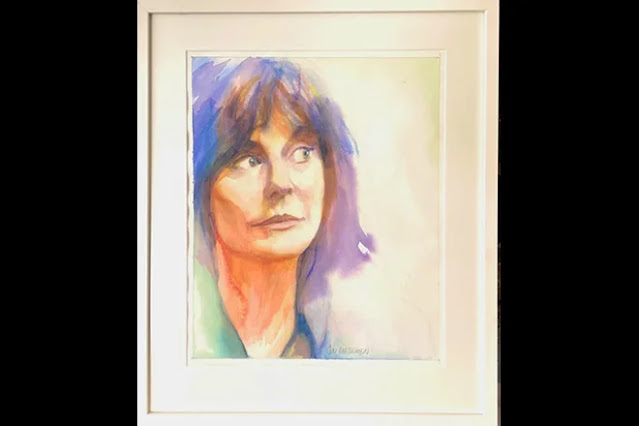
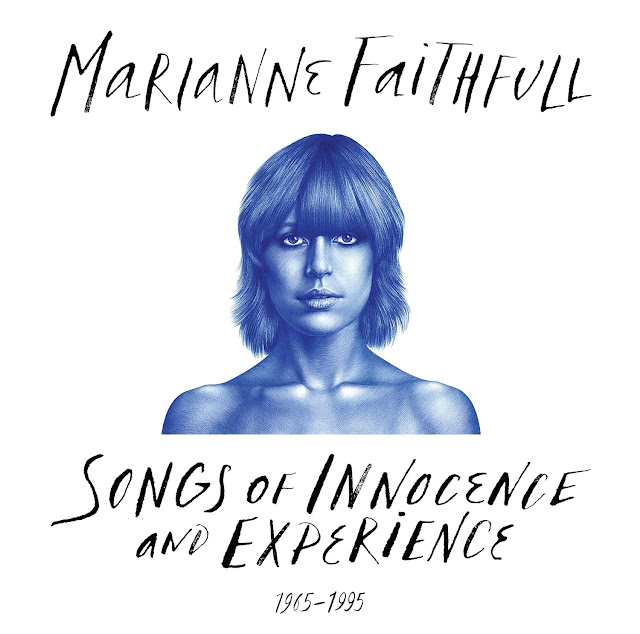












.png)



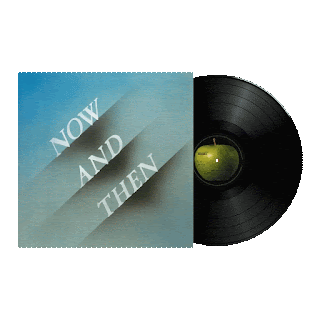



.png)



.png)
.png)
.png)
.png)
.png)
.png)
.png)

.png)
%20Janis%20Joplin%20-%20Codine%20(This%20is%20Janis%20Joplin)%20-%20YouTube.png)
.png)







.png)



.png)


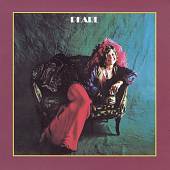
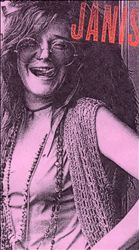

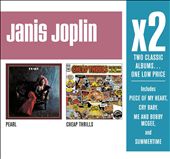

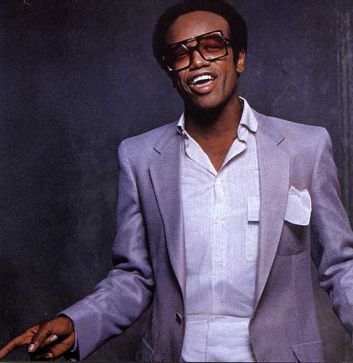





.png)

.png)





.png)

%20Tom%20Jones%20&%20Janis%20Joplin%20-%20Raise%20Your%20Hand%20-%20This%20is%20Tom%20Jones%20TV%20Show%20-%20YouTube.png)
.png)














%20(2).jpg)






%20-%20YouTube.png)





